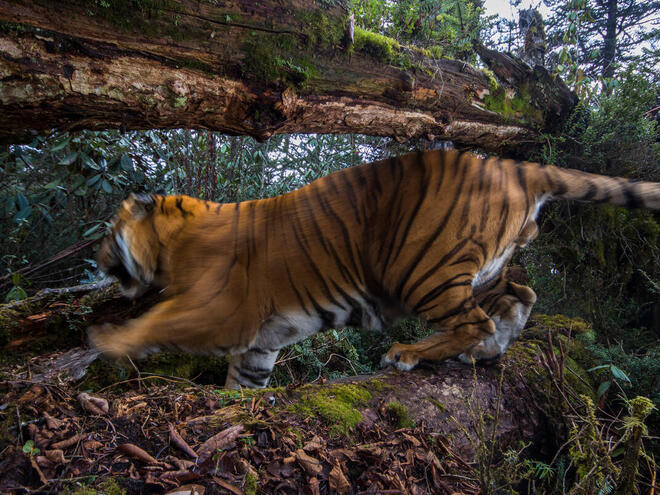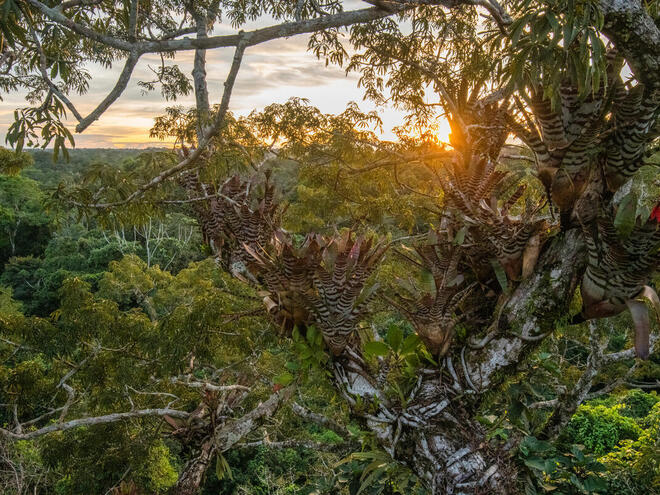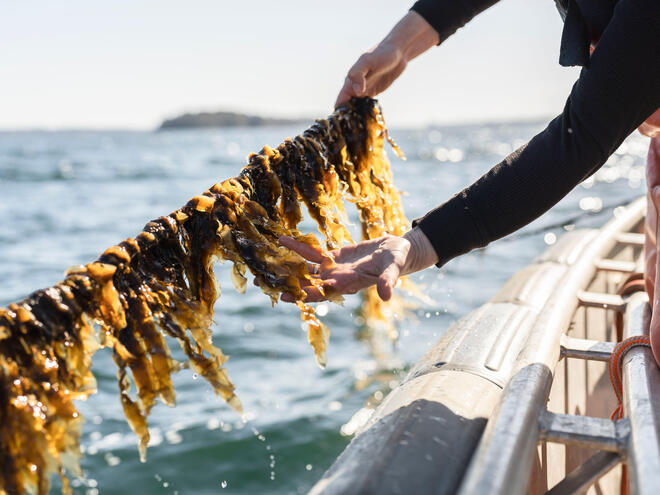 By conserving wildlife, from otters and elephants to tigers and oysters, we help protect the planet, including ourselves.
By conserving wildlife, from otters and elephants to tigers and oysters, we help protect the planet, including ourselves.Published November 28, 2022 at 06:00PM
View on Worldwildlife.org
The Chicago Health Academy for Medical and Pharmacy Education Interdisciplinary Studies Project: a collaboration between Chicago State University School of Pharmacy, Roosevelt University School of Pharmacy, UIC Urban Health Program, and the City Colleges of Chicago
 By conserving wildlife, from otters and elephants to tigers and oysters, we help protect the planet, including ourselves.
By conserving wildlife, from otters and elephants to tigers and oysters, we help protect the planet, including ourselves. All international climate talks begin with high hopes, and COP27 was seen as the moment for implementation and climate justice. Instead, it may be remembered as the COP of unmet expectations.
All international climate talks begin with high hopes, and COP27 was seen as the moment for implementation and climate justice. Instead, it may be remembered as the COP of unmet expectations. Snares, rudimentary traps that people have set by the millions on forest floors and snowy mountain pathways across Asia, are barely visible to the eye and a fatal danger to all wildlife.
Snares, rudimentary traps that people have set by the millions on forest floors and snowy mountain pathways across Asia, are barely visible to the eye and a fatal danger to all wildlife. A new program would transfer recycling responsibilities to the companies that use these materials for their products and packaging.
A new program would transfer recycling responsibilities to the companies that use these materials for their products and packaging. Water overuse, infrastructure, changes in the amount of rainfall, increased temperatures, and the climate crisis are decreasing the amount of water that has historically flowed in the Rio Grande.
Water overuse, infrastructure, changes in the amount of rainfall, increased temperatures, and the climate crisis are decreasing the amount of water that has historically flowed in the Rio Grande.
 Ambitions and promises need to translate into action, and at this COP, we will be looking for moments where we can set the stage to begin the real work and challenges around decarbonization.
Ambitions and promises need to translate into action, and at this COP, we will be looking for moments where we can set the stage to begin the real work and challenges around decarbonization. WWF works with large retailers, producers, and associations to secure commitments to support conversion-free farmed seafood.
WWF works with large retailers, producers, and associations to secure commitments to support conversion-free farmed seafood. Since 2016, a total of almost 10 million acres have been plowed across the region, which is an area nearly as large as New Jersey, Connecticut, and Rhode Island combined.
Since 2016, a total of almost 10 million acres have been plowed across the region, which is an area nearly as large as New Jersey, Connecticut, and Rhode Island combined. To protect our rapidly changing seas—and those who depend on them—we need to tackle challenges in a systematic way and focus on holistic improvements: place-based approaches.
To protect our rapidly changing seas—and those who depend on them—we need to tackle challenges in a systematic way and focus on holistic improvements: place-based approaches. Launched in northwest Zimbabwe in August, the survey is undertaken by the five KAZA partner countries—Angola, Botswana, Namibia, Zambia, and Zimbabwe—and with support from WWF and other partners.
Launched in northwest Zimbabwe in August, the survey is undertaken by the five KAZA partner countries—Angola, Botswana, Namibia, Zambia, and Zimbabwe—and with support from WWF and other partners. Background for the 2022 Fuller Symposium.
Background for the 2022 Fuller Symposium. This is the first time in over 25 years the Arctic fox has successfully bred in Finland. In recent years, more Arctic fox observations have been made at the feeding stations maintained.
This is the first time in over 25 years the Arctic fox has successfully bred in Finland. In recent years, more Arctic fox observations have been made at the feeding stations maintained. Seafood is one of the most frequently traded commodities on earth, so it’s essential that fishing is well-regulated around the world. But regulations must be complied with to be effective.
Seafood is one of the most frequently traded commodities on earth, so it’s essential that fishing is well-regulated around the world. But regulations must be complied with to be effective. Although mountain gorillas are still an endangered species, there are signs of hope for their recovery. And gorilla tourism also benefits local communities.
Although mountain gorillas are still an endangered species, there are signs of hope for their recovery. And gorilla tourism also benefits local communities. Climate Week is finally back at full force this year. Here's what I'm looking for during this moment when the bright lights of the big city of New York are trained squarely on the climate crisis.
Climate Week is finally back at full force this year. Here's what I'm looking for during this moment when the bright lights of the big city of New York are trained squarely on the climate crisis.Computer Languages (clcoding): Fractal Data Science Professional Certificate : What you'll learn Apply structured problem-solving tec...